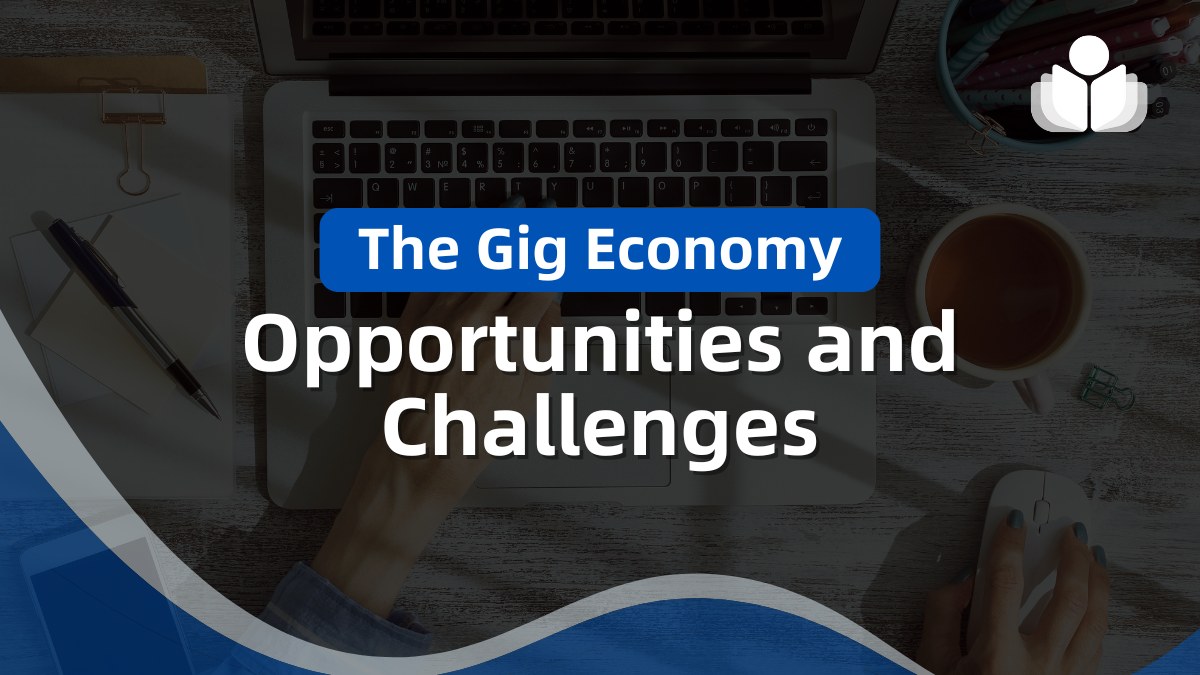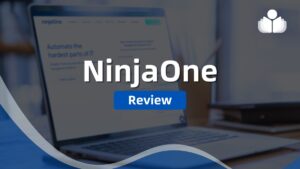The gig economy encompasses short-term, flexible work arrangements, including freelance, contract, and project-based jobs. Enabled by digital platforms, it has proliferated, offering workers opportunities to take on flexible roles outside traditional employment. This shift has been fueled by technological advancements and changing preferences for work-life balance and autonomy.
This guide will explore the opportunities and challenges the gig economy presents, providing insight into its impact on workers, employers, and society. By understanding the gig economy’s dynamics, readers can better navigate its benefits and drawbacks, whether they are current gig workers, prospective gig workers, or employers.
Growth and Evolution of the Gig Economy
Factors Driving Growth
Technological advancements have played a key role in gig economy growth. Digital platforms and mobile apps have made it easy for workers to find gigs and for companies to source talent on demand. Cultural shifts toward work flexibility and autonomy have led more individuals to seek gig opportunities.
Impact of the COVID-19 Pandemic
The COVID-19 pandemic accelerated the gig economy, especially in remote work, e-commerce, and delivery services. As lockdowns and social distancing became the norm, demand surged for services like food delivery, virtual assistance, and remote work platforms, further legitimizing the gig economy as a viable work model.
Current Scope and Sectors Involved
Today, the gig economy spans numerous sectors, including ride-sharing (Uber, Lyft), freelance platforms (Upwork, Fiverr), food delivery (DoorDash, Instacart), and even professional services like consulting, IT, and creative fields. This expansion highlights the gig economy’s versatility and potential to transform traditional employment sectors.
Opportunities in the Gig Economy
Flexibility and Autonomy
One of the biggest appeals of the gig economy is its flexibility. Gig workers can set their hours and choose projects that align with their interests, promoting a healthier work-life balance. This autonomy empowers individuals to manage their schedules according to personal needs.
Increased Income Potential
The gig economy provides an opportunity to supplement income or diversify income sources through multiple gigs. Skilled workers can charge premium rates for specialized services, offering the potential for higher earnings than in traditional roles.
Skill Development and Variety of Experience
Working on diverse projects across various industries exposes gig workers to multiple skills and experiences. Building a varied portfolio enables individuals to gain expertise and broaden their career prospects, which can be a strong advantage in today’s job market.
Pathway to Entrepreneurship
For many, the gig economy is a stepping stone toward starting a business. Gig work allows individuals to build a client base, establish a brand, and gain self-employment experience, making it easier to transition into full-fledged entrepreneurship.
Challenges in the Gig Economy
Income Instability and Insecurity
The gig economy often needs a more stable income than traditional employment. Gig workers depend on the availability of projects, which can fluctuate, leading to unpredictable earnings and financial insecurity.
Lack of Benefits and Protections
Gig workers rarely receive employer-provided benefits like health insurance, retirement contributions, or paid time off. This lack of support leaves the individual responsible for managing health care, retirement, and leave.
Work-Life Balance and Burnout
With income instability, many gig workers feel pressured to take on more gigs, which can lead to overworking and burnout. Remote gig work blurs boundaries between work and personal life, making it harder to maintain a healthy balance.
Limited Legal Protections and Job Security
Classified as independent contractors, gig workers often have fewer legal protections than traditional employees. This limits their recourse in cases of unfair termination, discrimination, or non-payment for work, making job security a primary concern in the gig economy.
Platforms and Tools Supporting the Gig Economy
Digital Platforms Facilitating Gig Work
Popular gig economy platforms like Upwork, Fiverr, TaskRabbit, DoorDash, and Uber have simplified finding and completing gig work. These platforms connect workers with clients, offering easy access to gigs and payment processing, making taking on flexible, short-term roles easier.
Tools for Managing Gig Work
Practical gig work often relies on tools to stay organized and productive. Project management apps like Trello and Asana help track tasks, while time-tracking apps like Toggl and Harvest support accurate billing.
Financial tools, such as QuickBooks and FreshBooks, assist with budgeting, invoicing, and tax management, enabling gig workers to manage their finances efficiently.
Payment and Security Features
Most gig platforms include secure payment options, including escrow accounts and milestone payments, to protect workers and clients. Review systems and feedback mechanisms also foster trust, making transactions safer and promoting accountability.
Financial Planning for Gig Workers
Budgeting and Income Management
Managing variable income is essential for gig workers. Budgeting helps stabilize finances by setting up emergency funds to handle lean months. Planning ensures financial stability despite the fluctuating nature of gig work.
Tax Implications and Filing Requirements
Gig workers handle self-employment taxes and quarterly payments. Tracking expenses and deductions can lower tax liability, making tools like expense trackers invaluable for staying organized and compliant with tax obligations.
Planning for Retirement and Benefits
Retirement and benefits are self-managed in gig work. Options like IRAs and SEP IRAs allow gig workers to save for retirement. Personal health insurance, disability coverage, and other essential benefits require proactive planning to secure financial well-being.
Building a Successful Gig Career
Marketing and Branding Yourself
Building a strong personal branding is vital to stand out in a competitive market in the gig economy. Building an online portfolio and using social media to showcase skills can attract more clients while highlighting expertise in specific areas builds credibility.
Networking and Building Client Relationships
Networking is vital in finding gigs and fostering long-term client relationships. Delivering quality work boosts client loyalty, often leading to referrals and repeat business, helping gig workers grow a steady client base.
Skill Development and Continuous Learning
To remain competitive, gig workers should continually upgrade their skills. Free and paid resources, like online courses and certifications, are available to enhance expertise, keeping gig workers up-to-date and marketable.
Impact of the Gig Economy on Traditional Employment
Blurring Lines Between Traditional and Gig Work
The gig economy has influenced traditional employment, increasing remote work, flexible hours, and hybrid models where companies integrate gig workers with full-time staff. These changes reflect the appeal of flexibility and autonomy in today’s workforce.
Advantages and Disadvantages for Employers
Hiring gig workers saves costs for employers on short-term projects, but managing a mix of full-time and gig workers can be challenging, particularly in maintaining quality and consistency.
Changes in Employee Expectations
The gig economy has shifted employee expectations, increasing demand for flexible, part-time, or freelance options within companies. Many traditional employees now seek roles that offer autonomy and work-life balance, reflecting gig work’s influence on modern employment models.
Legal and Regulatory Considerations for the Gig Economy
Worker Classification and Legal Definitions
The distinction between independent contractors and employees has significant legal implications for gig workers. Employees are entitled to benefits like health insurance, paid leave, and overtime, while independent contractors, typically classified as gig workers, lack these protections.
Laws like California’s AB5 aim to redefine gig workers’ rights and offer greater protections, sparking debates on worker classification and its impact on flexibility.
Labor Rights and Protections
Gig workers face challenges securing minimum wage, overtime pay, and benefits. Advocacy groups and lawmakers are pushing for improved rights and protections, addressing concerns over fair compensation and stability for gig workers.
Future of Gig Economy Regulations
As the gig economy grows, new laws may emerge to address gig workers’ needs. Changes in classification could impact the flexibility that attracts many to gig work, potentially altering the industry’s structure to support worker rights and protections better.
Future Outlook for the Gig Economy
Projected Growth and Emerging Trends
The gig economy is projected to expand, with new sectors likely to adopt gig work models. As more industries embrace flexible work, roles like consulting, healthcare, and digital marketing may shift toward gig-based arrangements.
Impact of Technological Advancements
Emerging technologies, such as AI and automation, are poised to shape the gig economy further. AI can streamline gig matching, offering data-driven insights and remote work management. However, automation may also replace certain gigs, altering the landscape of available work.
Evolving Worker Expectations and Work Models
The gig economy redefines worker expectations, with a greater demand for autonomy and flexibility. This shift may lead traditional employment to incorporate more gig-like options, blending freelance and full-time roles within companies.
Conclusion
The gig economy offers flexibility, income potential, and skill development but comes with instability, lack of benefits, and limited legal protections. Its influence reshapes the workforce, appealing to those seeking autonomy while challenging traditional job structures.
For those considering gig work, it’s essential to weigh the benefits and challenges thoughtfully. Success in the gig economy requires personal preparation, financial planning, and adaptability. With a strategic approach, individuals can leverage gig work’s flexibility to build a rewarding career path.
 Sections of this topic
Sections of this topic
















